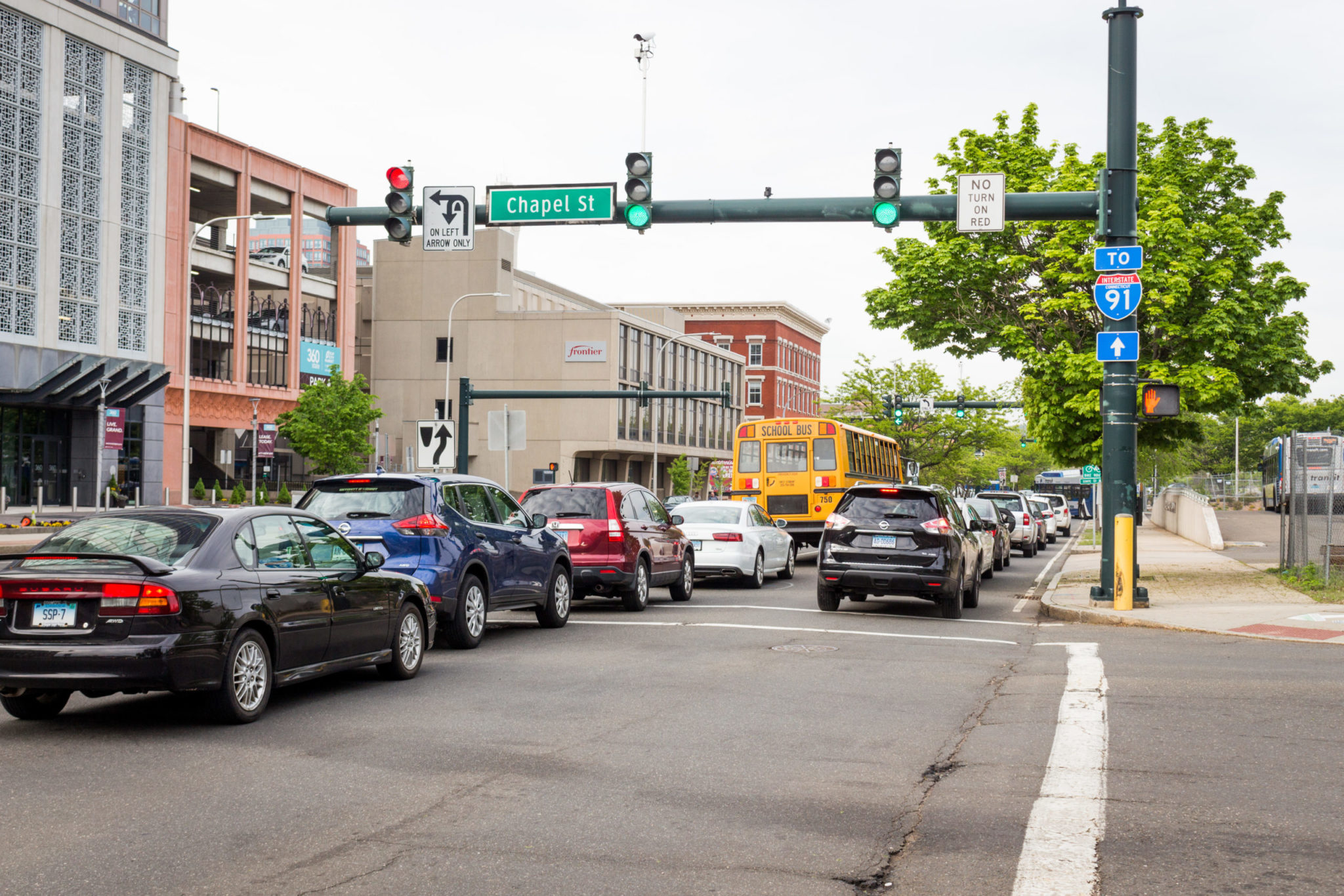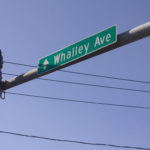
Daniel Zhao, Senior Photographer
Last Tuesday, more than 150 residents of the greater New Haven area submitted testimony in favor of H.B. 5429, an omnibus traffic safety bill that activists argue is long overdue. The bill’s virtual hearing lasted over five hours, and a slew of city officials, the Safe Streets Coalition of New Haven and members of the Yale community supported the legislation.
A record number of pedestrians died in New Haven last year. As such, conversations about traffic safety have intensified. The Safe Streets Coalition, a traffic safety advocacy group, demanded a slate of policy changes from Mayor Justin Elicker in October. A number of their requests, including a pilot program for automated enforcement and a new network for green bike paths, are one step closer to reality with H.B. 5429 — a bill introduced by state House Transportation Committee Chair Rep. Roland Lemar, D-New Haven.
“Too often, traffic incidents and pedestrian deaths go unnoticed, particularly when they take place in communities of color,” Elicker said at the hearing. “H.B 5429 has several provisions that will dramatically improve the public safety of New Haven … by empowering us with the authority to take action effectively and equitably.”
If passed, H.B. 5429 would give New Haven greater control over local speed limits and increase fines for drivers who violate crosswalk and mobile device usage laws, among other provisions. In previous interviews with the News, Lemar cited his role as a father of three young children as his reason for pushing traffic safety legislation. He has since directed efforts to pass local speed limit controls and vulnerable user laws.
Dozens of Safe Streets Coalition members featured in Tuesday’s hearing, either appearing virtually or submitting written testimony. Safe Streets Coalition organizer Kai Addae called the bill’s changes “long overdue.”
Tensions arose between some Safe Streets members and Elicker’s office last October, as some organizers claimed that the mayor had not taken enough action to address the group’s demands. Since then, however, the mayor attended one of the group’s monthly mobilization meetings, a discussion about a new “Safe Routes for All” plan. This plan is intended to update previous traffic safety legislation and has already been assigned to design contractor Mike Lydon.
Max Chaoulideer GRD ’21, who also spoke at the hearing, said that H.B. 5429, coupled with the Safe Streets’ communication with Elicker, is encouraging.
“As of now, we don’t have plans for future meetings with the mayor, though we hope to have follow-up meetings with him and other city officials in the coming months to discuss specifics of budget process and timeline,” Chaoulideer said. “We want to figure out how to best bring community input genuinely into the process.”
Among the hearing’s 150 endorsers were Tracey Meares, Tom Tyler and James Forman — all Yale Law School professors who submitted joint written testimony. Their testimony cited existing automated enforcement programs in New York and Los Angeles designed to reduce the negative impacts of traffic enforcement on Black, Latinx and low-income individuals.
Automated enforcement is a broad category of technology including red light and speed enforcement cameras, though H.B. 5429’s provisions only include the latter. Previous efforts to establish automated enforcement have been hotly contested on privacy and racial equity grounds. Lemar told the News that automated enforcement is “better than stationing a cop on every other block” and said that he has plans to discuss the issue with groups such as the ACLU as the legislation progresses.
Yale students were also virtually present at the hearing. Helia Bidad LAW ’22 and Andrew Granato LAW ’23 both testified and cited the October death of their classmate in a motor vehicle incident as a reason for supporting the traffic safety bill. Several members of the Yale College Democrats also submitted written testimony in favor of the bill, including legislative fellow Zoe Hsu ’24. Her statement applauds the section on automated enforcement and references a collision between two pedestrians and a car during the University’s 2019 Bulldog Days.
“I felt compelled to testify in favor of H.B. 5429, because automated speed enforcement is a much more equitable solution as opposed to traditional enforcement that often targets Black and Latino drivers,” Hsu said. “Far too many accidents have devastated families, so the proposed changes will increase safety for all New Haven pedestrians.”
H.B. 5429 is officially titled “An Act Concerning Pedestrian Safety, Vision Zero, Council, Speed Limits in Municipalities, Fines And Charges For Certain Violations, The Greenways Commemorative Account And Maintenance Work Zone And School Zone Safety Enforcement.”
Isaac Yu | isaac.yu@yale.edu








